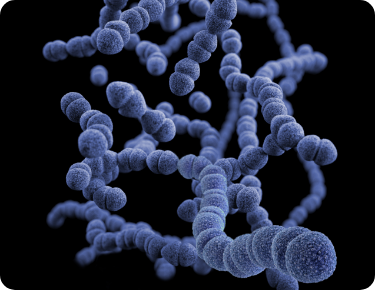There is accumulating evidence that a strong thyroid–gut axis exists. The thyroid-gut axis lies along an important, but not yet well-known correlation between the gut microbiome and its effect on the thyroid function. Healthy gut microbiota also exercises beneficial effects on the activity of the immune system.
The gut microbiota regulates not just the development of immune cells, but also “homeostasis” or a state of balance among all systems in the body.
Gut bacteria modulate the development of both the innate and the adaptive immune system. It plays a crucial role in the development of gut-associated lymphatic tissue (GALT), the home of over 70% of the entire immune system. Moreover, GALT plays a vital role in the development of tolerance to self-antigens by regulating its toll-like receptors (TLR) in the intestinal mucosa.
The relationship between thyroid and intestinal diseases
The beneficial effects of a healthy gut microbiota extend not only to the immune system but also to thyroid function. In fact, intestinal diseases and thyroid diseases are often seen to coexist. For instance, Hashimoto’s thyroiditis (HT) and Graves’ disease (GD), the most common autoimmune thyroid diseases (AITD), are often found to co-occur with celiac disease (CD) and non-celiac wheat sensitivity (NCWS).
The precise mechanisms behind AITDs have not been uncovered yet. However, it has been proposed that the pathogenesis of AITDs stems from the interaction of factors such as genetic predisposition, immune impairment, and environmental factors (including micronutrients and their interaction with gut microbiota).
Gut dysbiosis has not only been found to be present in AITDs but also in thyroid cancer, along with an increased number of carcinogenic and inflammatory bacterial strains. The damaged intestinal barrier and the subsequent increase in intestinal permeability (leaky gut) allow antigens to pass through more easily. This causes the antigens to cross-react with tissues even outside the intestine.
Why micronutrients are important
The gut microbial composition influences the availability of essential micronutrients which are crucial for the optimal functioning of the thyroid gland.
- Iodine, copper, and iron: crucial for the synthesis of the thyroid hormone
- Selenium and zinc: required for converting T4 to T3
- Vitamin D: assists in regulating the immune response.
These micronutrients are often found to be deficient in AITDs, resulting in malfunctioning of the thyroid. Furthermore, interventions such as bariatric surgery can lead to inadequate absorption of these nutrients.
The downstream effects of a deficiency of these crucial micronutrients include changes in thyroid-stimulating hormone (TSH) and T3 levels.
Supplementing a healthy diet with probiotics has been shown to improve thyroid function and exert beneficial effects on thyroid hormones.
The various potential effects of the microbiota and micronutrients on thyroid functions and medications lay the groundwork for novel treatments in the management of AITDs. Multifactorial therapeutic and preventative strategies for thyroid diseases could be based on these findings and personalized depending on the patient’s gut microbial composition.
Future research should include studies designed to evaluate the impact of alterations in gut microbiota on thyroid function and the development of associated diseases.












